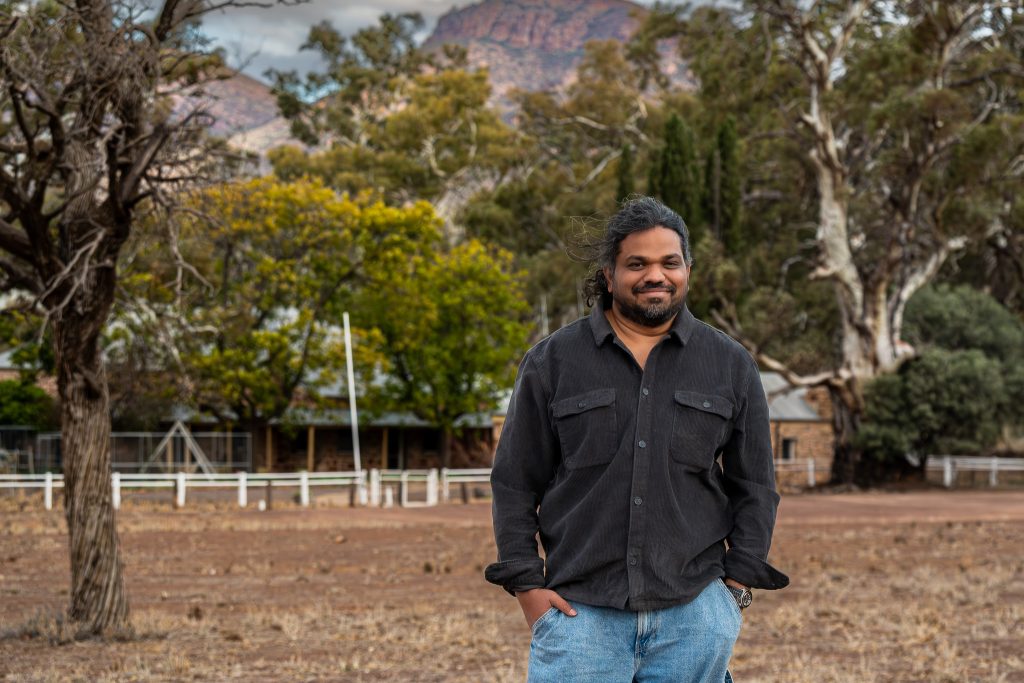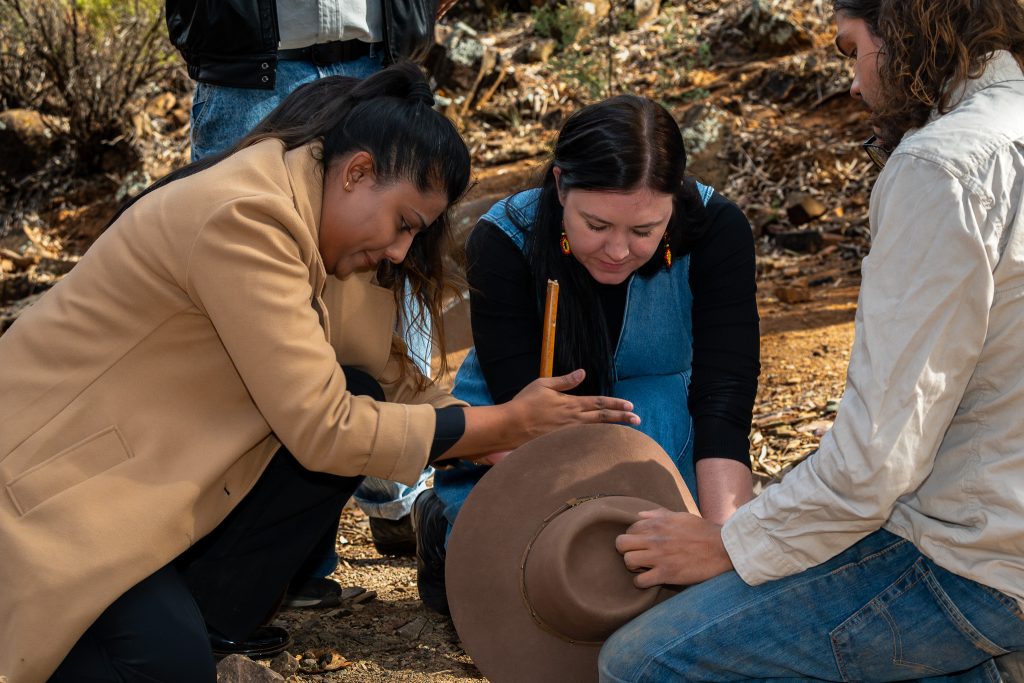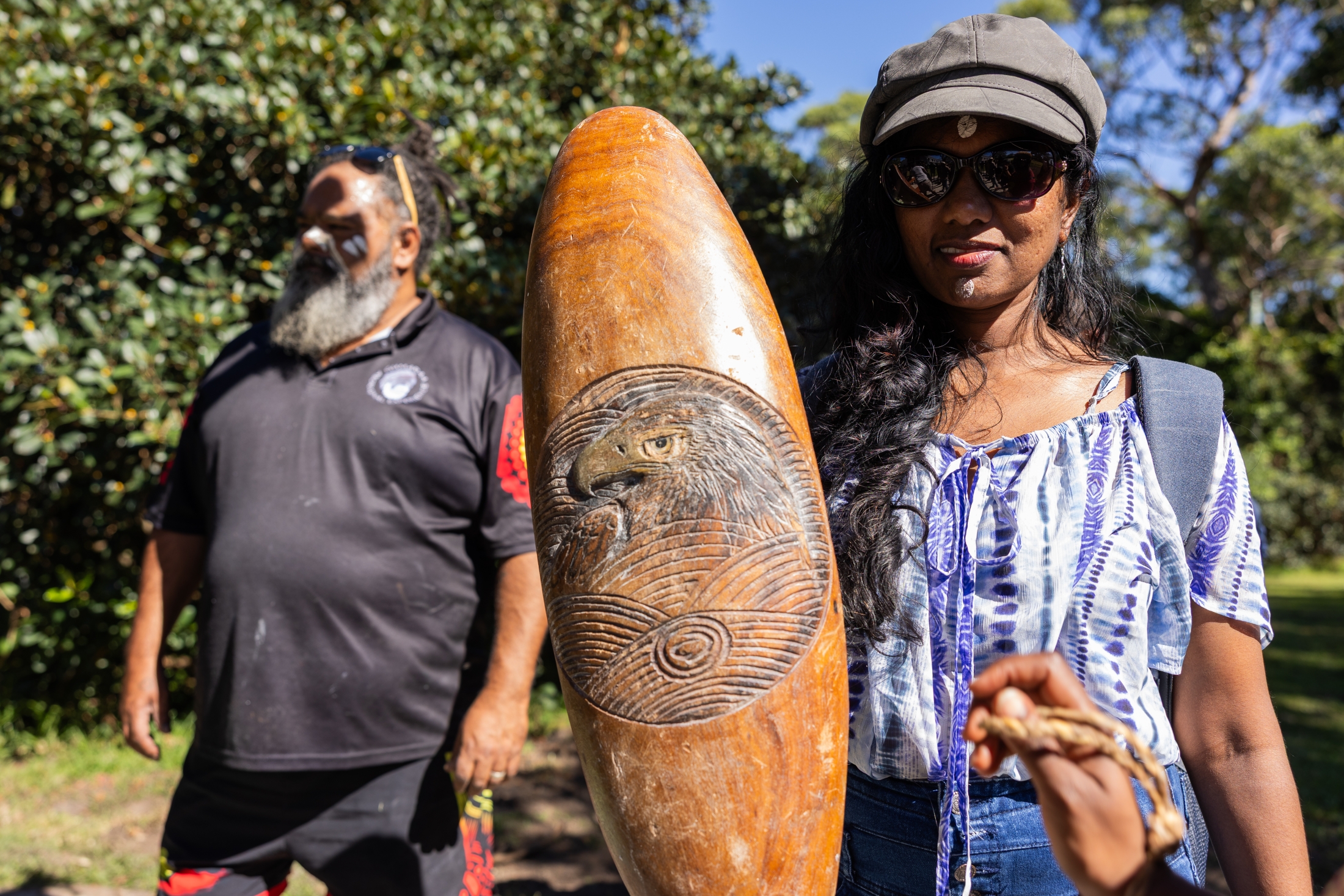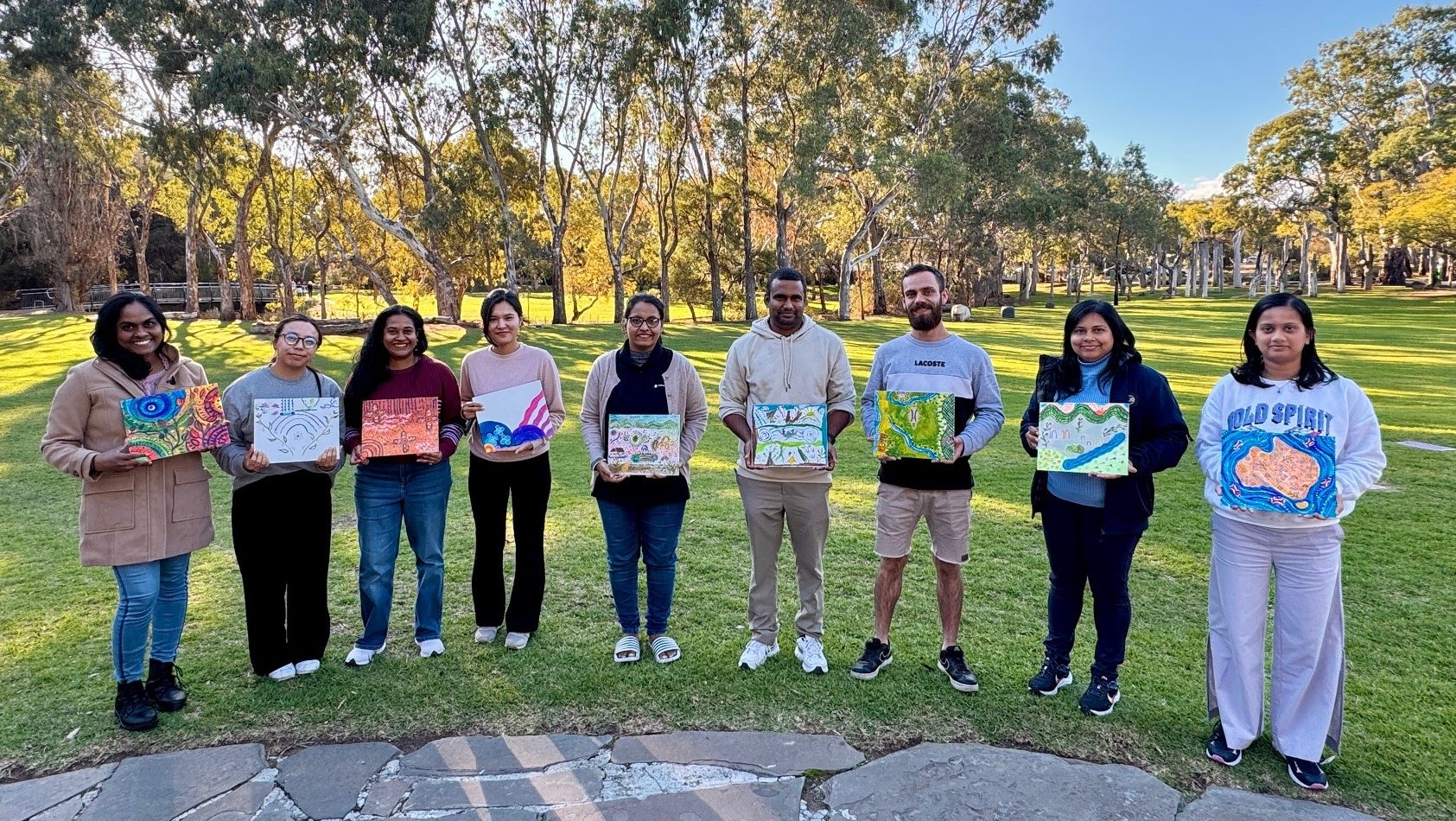Scholars gain new experiences and knowledge through First Nations engagement activities
Posted: 3 July 2025
In the lead-up to NAIDOC Week 2025, Australia Awards scholars from Sri Lanka participated in a series of Indigenous engagement activities held across Australia and online. Scholars from Bangladesh, Bhutan, Maldives, Mongolia, Nepal and Pakistan also took part, with the experiences offering participants meaningful opportunities to deepen their understanding and appreciation of Indigenous Australians’ culture, traditions, history and achievements.
Building on the success of last year’s First Nations experience, Australia Awards – South Asia & Mongolia delivered a flagship initiative: a four-day, three-night immersive First Nations study tour in the Ikara-Flinders Ranges National Park, South Australia. Ten selected scholars from South Asia and Mongolia, including several who identify as indigenous or come from traditionally marginalised groups, travelled from across Australia to participate in this experience. Scholars undertook activities to learn about the relationship that the Adnyamathanha people, the Traditional Owners of the greater Ikara and Flinders Ranges area, have with the environment. Scholars also learnt about Indigenous history, knowledge and perspectives through a trivia and storytelling event at Ikara, leading to a discussion of this year’s NAIDOC theme: ‘The Next Generation: Strength, Vision & Legacy’.

Sri Lankan scholar Sreen Boralessa during the study tour in the Ikara-Flinders Ranges National Park
Sri Lankan scholar Jeevani Lakshani Fernando appreciated the study tour opportunity, describing it as an experience she will always treasure. “I was fascinated to explore topics I had never encountered before, such as the Australian Institute of Aboriginal and Torres Strait Islander Studies map [of Indigenous Australia], Indigenous languages, and the cultural traditions of the Adnyamathanha people,” she said. She was particularly captivated by nature-based learning, including the concept of the ‘supermarket tree’ and traditional fire-making techniques. “I’m incredibly grateful for the opportunity to connect with Country and gain a deeper understanding of the traditional custodians of the Ikara-Flinders Ranges,” she added.

Jeevani (left) building a fire with Alice Tamang (middle), Indigenous Engagement Advisor for Australia Awards – South Asia & Mongolia, and Adnyamathanha guide Izzy during the study tour in the Ikara-Flinders Ranges National Park.
In Sydney, scholars travelled to Bundeena Royal National Park, located on the traditional lands of the Dharawal people. Richard Campbell, a member of the Yuin Nation, began the tour with a smoking ceremony, Welcome to Country and face-painting using ochre. Richard shared cultural stories through traditional artefacts, such as fire sticks, boomerangs, digging tools, shields and animal furs. Scholars also had the opportunity for hands-on engagement by learning traditional boomerang throwing and fire-making techniques.
Sri Lankan scholar Kumuduni Dissanayake said, “I was fascinated to discover similarities between their way of life and that of the Sri Lankan Vedda community, particularly in the tools used for hunting and their deep connection to nature. It’s remarkable to think about how both communities developed such knowledge in ancient times. Beyond the learning, I thoroughly enjoyed spending time with my fellow peers and was delighted to make new friends from other universities. It was a truly enriching and memorable experience.”

Scholar Kumudini (right) holding a shield shared by Richard Campbell, a member of the Yuin Nation (background), during the Bundeena Indigenous Bush Walk.
In Adelaide, scholars visited the Living Kaurna Cultural Centre, a 100% Aboriginal owned establishment, where they participated in an Aboriginal art class led by Brye, a local Indigenous artist. Brye began the session by sharing stories of the land, emphasising the role of art in preserving cultural knowledge, strengthening social bonds, and expressing connection to Country through symbols and forms. Scholars then created their own artworks, each accompanied by a personal narrative reflecting the meaning behind their designs. The scholars also learnt about the history of the Warriparinga wetlands and viewed an 800-year-old scarred tree, a living testament to the area’s deep history.
Afterwards, Pavithra Wickramage, another Sri Lankan scholar, said, “It was a truly pleasant and relaxing experience. I felt completely immersed in the artwork during the session. The calm and supportive environment, along with the serene location, made it even more enjoyable. The instructor was excellent—clear, engaging and very encouraging.”

Scholar Pavithra (far right) holding her artwork after completing the art session with other scholars from South Asia.
In an online Aboriginal weaving workshop, scholars connected with Ronnie Jordan, a Pitta Pitta Wangkamahdla woman, and Coen, a Pitta Pitta Wangkamahdla Muruwari Ngemba man. Ronnie opened the session with storytelling, explaining how woven objects serve as tangible links between the weaver, their ancestors and the land, while also acting as tools for mindfulness and reflection. Scholars, who had received weaving materials in advance, followed step-by-step instructions to learn coil weaving and rope making. The shared activity fostered a sense of community among participants across Australia, while celebrating the resilience, creativity and living traditions of Indigenous cultures.
After the workshop, Sri Lankan scholar Dilini Perera described the experience as enjoyable and fascinating. “It highlighted how traditional crafting techniques can connect cultures across the world. I was surprised to discover similarities between these methods and the traditional weaving practices from my own country. This shared craftsmanship reveals a deeper, universal heritage that transcends cultural boundaries,” she said.
These immersive experiences continue to foster meaningful cross-cultural understanding and appreciation among the scholars, reinforcing the importance of Indigenous knowledge and heritage in contemporary Australia.